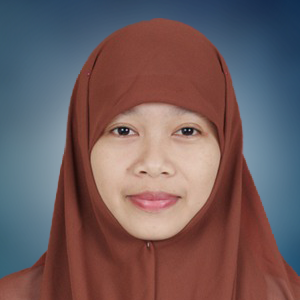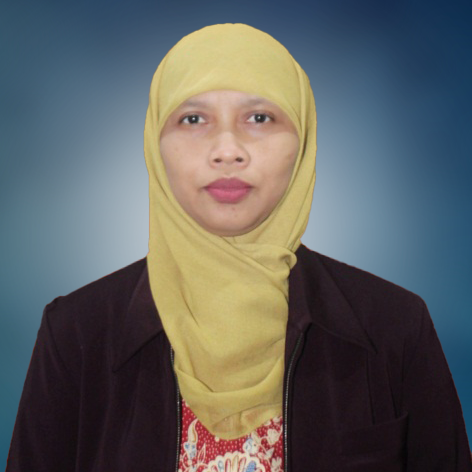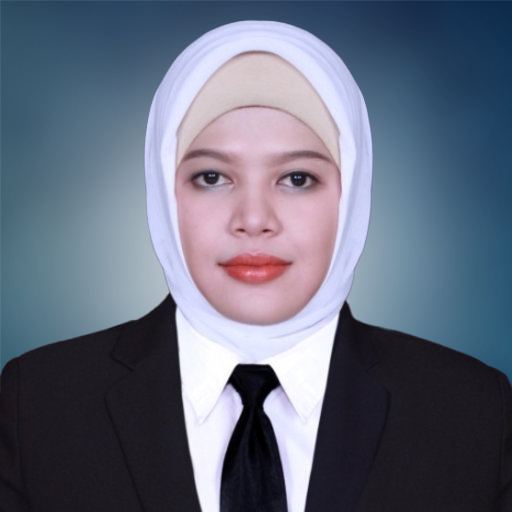OPTIMALISASI BREASFEEDING SELF-EFFICACY DAN KEBERHASILAN MENYUSUI MELALUI ONLINE CLASS PERSIAPAN MENYUSUI: STUDI PADA IBU HAMIL DI MASA PANDEMI COVID-19
Abstract
Pencapaian target ASI eksklusif di Indonesia dalam 3 tahun terakhir cenderung turun. Selanjutnya pandemi COVID-19 berdampak pada pembatasan akses pelayanan kesehatan, sehingga dibutuhkan upaya agar pencapaian ASI eksklusif di masa Pandemi COVID-19 menjadi lebih baik. Tujuan studi ini untuk mengetahui pengaruh online class persiapan menyusui terhadap breastfeeding self-efficacy (BSE) dan keberhasilan menyusui. Desain penelitian quasi experiment. Sampel Penelitian ibu hamil trimester III di Kecamatan Baturraden sejumlah 38 orang dengan total sampling. Instrumen penelitian menggunakan breastfeeding self-efficacy scale-short form (BSES-SF) dan lembar observasi data menyusui. Uji statistik menggunakan T-test, Mann-Whitney, Fisher dan Koefisien Kontingensi. Hasil yang diperoleh ada perbedaan BSE posttest, BSE delta dan penanganan masalah menyusui antara kelompok intervensi dan kelompok kontrol. Responden yang mengikuti online class mempunyai kemungkinan 18,66 kali untuk menangani masalah menyusui sesuai manajemen laktasi. Kesimpulan penelitian ini adalah ada pengaruh online class persiapan menyusui terhadap BSE dan penanganan masalah menyusui.
Keywords
Full Text:
PDFReferences
Araban, M., Karimian, Z., Kakolaki, Z. K., McQueen, K. A., & Dennis, C.-L. (2018). Randomized controlled trial of a prenatal breastfeeding self-efficacy intervention in primiparous women in Iran. Journal of Obstetric, Gynecologic & Neonatal Nursing, 47(2), 173–183.
Boateng, G. O., Martin, S. L., Tuthill, E. L., Collins, S. M., Dennis, C.-L., Natamba, B. K., & Young, S. L. (2019). Adaptation and psychometric evaluation of the breastfeeding self-efficacy scale to assess exclusive breastfeeding. BMC Pregnancy and Childbirth, 19(1), 1–14.
Boccolini, C. S., Carvalho, M. L. de, & Oliveira, M. I. C. de. (2015). Factors associated with exclusive breastfeeding in the first six months of life in Brazil: a systematic review. Revista de Saude Publica, 49.
Demirtas, B. (2012). Breastfeeding support received by Turkish first‐time mothers. International Nursing Review, 59(3), 338–344.
Dennis, C.-L., Brennenstuhl, S., & Abbass-Dick, J. (2018). Measuring paternal breastfeeding self-efficacy: A psychometric evaluation of the Breastfeeding Self-Efficacy Scale–Short Form among fathers. Midwifery, 64, 17–22.
Dinkes Banyumas. (2020). Profil Kesehatan Tahun 2019 (Vol. 53, Issue 9). Dinas Kesehatan Kabupaten Banyumas.
Dinkes Banyumas. (2021). Profil Kesehatan Tahun 2020 (Vol. 148). Dinas Kesehatan Kabupaten Banyumas.
Dinkes Jateng. (2021). Profil Kesehatan Provinsi Jawa Tengah Tahun 2020. Dinas Kesehatan Provinsi Jawa Tengah.
Direktorat Kesehatan Keluarga. (2020). Pedoman Bagi Ibu Hamil, Ibu Nifas, dan Bayi Baru Lahir Di Era Pandemi Covid-19. http://www.kesga.kemkes.go.id/images/pedoman/Pedoman bagi Ibu Hamil, Bersalin, Nifas dan BBL di Era Pandemi COVID 19.pdf
Dodt, R. C. M., Ximenes, L. B., Almeida, P. C., Oria, M. B., & Oliveira, C.-L. N. (2012). Psychometric and maternal sociodemographic assessment of the breastfeeding self-efficacy scale-short form in a brazilian sample. Journal of Nursing Education and Practice, 2(3), 66.
Dwinanda, N., Syarif, B. H., & Sjarif, D. R. (2018). Factors affecting exclusive breastfeeding in term infants. Paediatr Indonesia, 58(1), 25–35.
Glassman, M. E., McKearney, K., Saslaw, M., & Sirota, D. R. (2014). Impact of breastfeeding self-efficacy and sociocultural factors on early breastfeeding in an urban, predominantly Dominican community. Breastfeeding Medicine, 9(6), 301–307.
Hodges, C. B. (2018). Self-efficacy in instructional technology contexts. Springer.
Iliadou, M., Lykeridou, K., Prezerakos, P., Swift, E. M., & Tziaferi, S. G. (2018). Measuring the effectiveness of a midwife-led education programme in terms of breastfeeding knowledge and self-efficacy, attitudes towards breastfeeding, and perceived barriers of breastfeeding among pregnant women. Materia Socio-Medica, 30(4), 240.
Ip, W.-Y., Gao, L.-L., Choi, K.-C., Chau, J. P.-C., & Xiao, Y. (2016). The short form of the breastfeeding self-efficacy scale as a prognostic factor of exclusive breastfeeding among mandarin-speaking Chinese mothers. Journal of Human Lactation, 32(4), 711–720.
Jones, J. R., Kogan, M. D., Singh, G. K., Dee, D. L., & Grummer-Strawn, L. M. (2011). Factors associated with exclusive breastfeeding in the United States. Pediatrics, 128(6), 1117–1125.
Kemendikbud. (n.d.). KBBI DARING. Retrieved April 29, 2022, from https://kbbi.kemdikbud.go.id/
Kemenkes RI. (2019). Profil Kesehatan Indonesia 2018. Kemnenkes RI. http://www.depkes.go.id/resources/download/pusdatin/profil-kesehatan-indonesia/Data-dan-Informasi_Profil-Kesehatan-Indonesia-2018.pdf
Kemenkes RI. (2020). Profil Kesehatan Indonesia Tahun 2019. Kemenkes RI.
Kemenkes RI. (2021). Profil Kesehatan Indonesia 2020. In Kementrian Kesehatan Republik Indonesia. Kemenkes RI. https://pusdatin.kemkes.go.id/resources/download/pusdatin/profil-kesehatan-indonesia/Profil-Kesehatan-Indonesia-Tahun-2020.pdf
Kemenkes RI. (2014). Pegangan Fasilitator Kelas Ibu Hamil. Kemenkes RI.
McQueen, K. A., Montelpare, W. J., & Dennis, C.-L. (2013). Response Papers/Documents de réponse-Breastfeeding and Aboriginal Women: Validation of the Breastfeeding Self-Efficacy Scale. Canadian Journal of Nursing Research Archive, 58–75.
Mizrak, B., Ozerdogan, N., & Colak, E. (2017). The effect of antenatal education on breastfeeding self-efficacy: Primiparous women in Turkey. International Journal of Caring Sciences, 10(1), 503.
Ngo, L. T. H., Chou, H.-F., Gau, M.-L., & Liu, C.-Y. (2019). Breastfeeding self-efficacy and related factors in postpartum Vietnamese women. Midwifery, 70, 84–91.
Nursan, C., Dilek, K., & Sevin, A. (2014). Breastfeeding self-efficacy of mothers and the affecting factors. Aquichan, 14(3), 327–335.
Rachmatika, F., Al Rasyid, H., & Zuhriyah, L. (2019). Pengalaman ibu menyusui di RSIA X Kota Malang. Berita Kedokteran Masyarakat, 35(8).
Rizkie, N. (2017). Hubungan Kelas Ibu Hamil Dengan Maternal Self Efficacy Dan Tingkat Stres Ibu Postpartum. Repository Poltekkes Kemenkes Semarang.
Setegn, T., Belachew, T., Gerbaba, M., Deribe, K., Deribew, A., & Biadgilign, S. (2012). Factors associated with exclusive breastfeeding practices among mothers in Goba district, south east Ethiopia: a cross-sectional study. International Breastfeeding Journal, 7(1), 1–8.
Tokat, M. A., Okumuş, H., & Dennis, C.-L. (2010). Translation and psychometric assessment of the Breast-feeding Self-Efficacy Scale—Short Form among pregnant and postnatal women in Turkey. Midwifery, 26(1), 101–108.
Yuliani, D. R., Saragih, E., Astuti, A., Wahyuni, W., Ani, M., Muyassaroh, Y., Nardina, E. A., Dewi, R. K., Sulfianti, S., & Ismawati, I. (2021). Asuhan Kehamilan. Yayasan Kita Menulis.
Zubaran, C., & Foresti, K. (2013). The correlation between breastfeeding self-efficacy and maternal postpartum depression in southern Brazil. Sexual & Reproductive Healthcare, 4(1), 9–15. https://doi.org/https://doi.org/10.1016/j.srhc.2012.12.001
DOI: https://doi.org/10.31983/jsk.v4i1.8466
Article Metrics
Refbacks
- There are currently no refbacks.


















